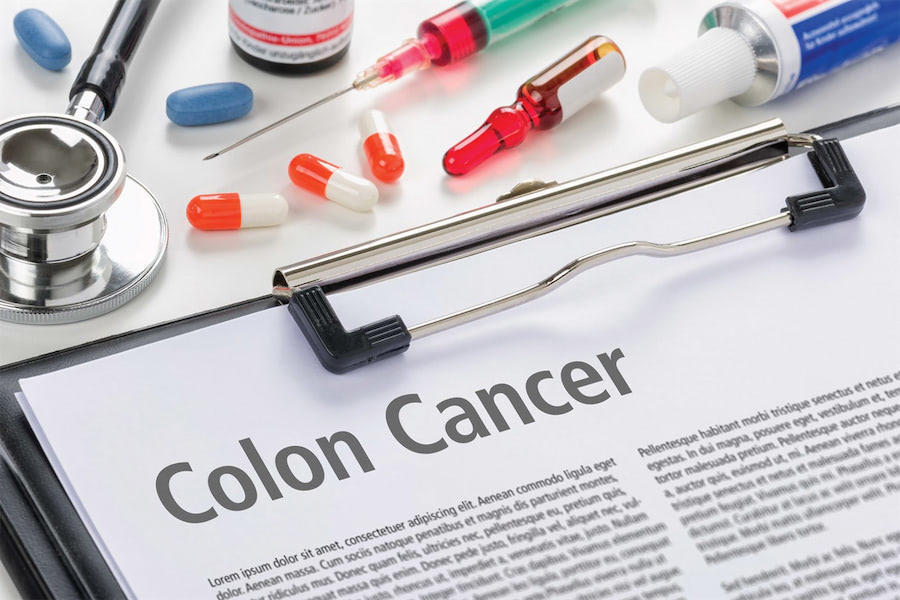
The Imperative of Colon Cancer Awareness
Colon cancer, a prevalent and potentially fatal condition, arises in the colon or rectum. Early detection through screening can significantly reduce the risk and ensure effective treatment. Awareness of its symptoms, risk factors, and preventive measures is essential to combat this life-threatening disease effectively.
Screening: A Proactive Step in Colon Cancer Prevention
Screening for colon cancer is crucial as it allows for the early detection of precancerous polyps, enabling removal before they develop into cancer. Regular screenings are recommended, especially for individuals over the age of 45 or those with a family history of the disease. Research indicates that certain lifestyle factors, such as smoking and excessive alcohol consumption, increase the risk of colon cancer. Eating more fruits, vegetables, and whole grains, exercising regularly, and limiting red meat intake can reduce this risk.
Colonoscopy: A Comprehensive Screening Method
A colonoscopy is a highly effective screening method, allowing for the examination of the entire colon and rectum. It can detect early-stage colon cancer and precancerous growths, offering the opportunity for immediate removal of any abnormal findings, thus preventing the progression of cancer.
This procedure requires a patient to be prepared in advance, typically by drinking a special laxative solution that cleans the colon for better visualization. The doctor then inserts a flexible scope into the rectum to examine and remove any abnormal growths. It is recommended that adults undergo colonoscopies every ten years or more frequently if they have an increased risk of developing colon cancer.
The Importance of Regular Screenings in High-Risk Individuals
Individuals with a family history of colon cancer, a personal history of inflammatory bowel disease, or other risk factors should undergo regular screenings. Early detection through routine checks is vital in managing the disease effectively and reducing mortality rates associated with it. It is also important to address any symptoms of colon cancer, such as rectal bleeding, abdominal pain, anemia, and fatigue. Consulting a physician can help determine the cause and provide guidance on the next steps.
Regular screenings are essential for managing the risk associated with colon cancer. Adopting a healthy lifestyle and being aware of potential warning signs can make all the difference in ensuring a healthier life. Taking proactive steps to reduce the risk of colon cancer can greatly improve one's chances of leading a long and healthy life.
Innovations and Advances in Colon Cancer Screening
Advancements in medical technology have led to the development of more sophisticated and less invasive screening methods, such as virtual colonoscopy and stool DNA testing. These innovations enhance the accuracy of detection and provide more options for individuals undergoing screening. In addition, the use of AI-driven algorithms to analyze imaging data has enabled more accurate and reliable detection of colon cancer. This technology is being used to develop automated tools that can diagnose and treat the disease with a greater degree of accuracy than ever before.
Lifestyle Modifications: Reducing the Risk of Colon Cancer
Adopting a healthy lifestyle, including a balanced diet, regular exercise, and avoiding tobacco and excessive alcohol, can significantly reduce the risk of developing colon cancer. Studies have shown a direct correlation between lifestyle choices and the incidence of colon cancer. In addition, individuals should also be mindful of any changes in bowel habits, such as persistent constipation or diarrhea, as these can be symptoms of colon cancer. Regular screenings are imperative for those at higher risk and can help catch the disease early on when effective treatment is more likely.
By being aware of our bodies and making lifestyle modifications, we can protect ourselves from the dangers of colon cancer and ensure a healthier future.
Addressing Fears and Misconceptions about Colonoscopy
Many people avoid colonoscopies due to fear, misconceptions, or the belief that they are not at risk. Addressing these concerns through education and awareness can encourage more people to undergo this life-saving procedure, ultimately reducing the prevalence of colon cancer.
It is important to understand that colonoscopy is a safe and relatively painless procedure with minimal discomfort. In addition, many health plans include coverage for the screening cost, making it accessible to more people. Consulting a doctor can help alleviate fears and misconceptions about the procedure and motivate individuals to take proactive steps in managing their health.
The Economic Impact of Early Detection through Screening
Early detection of colon cancer through screening not only saves lives but also reduces the economic burden associated with the treatment of advanced-stage cancer. It lowers healthcare costs by avoiding extensive treatments and hospital stays required for late-stage cancer patients.
This underscores the importance of regular screenings and proactive health management. Establishing prevention programs, providing public health education, and expanding access to quality healthcare are all critical steps in reducing the incidence of colon cancer and its associated economic costs.
Conclusion: The Life-Saving Potential of Colon Cancer Screening and Colonoscopy
Emphasizing the importance of early screening and colonoscopy is crucial in the fight against colon cancer. Regular screenings, lifestyle modifications, and advancements in screening technology play significant roles in reducing the incidence and mortality of colon cancer. By taking proactive steps to manage our health, we can ensure that we and our loved ones are better protected against this disease. Colonoscopy is a powerful tool for early detection, offering the best chance of successful treatment and improved prognosis. Ultimately, regular screening saves lives.
It is important to remain informed and aware of the risks associated with colon cancer, as well as the potential benefits of regular screenings. Taking proactive steps to protect ourselves and our families from colon cancer is an invaluable measure that can make all the difference in ensuring a healthy future for us all.
